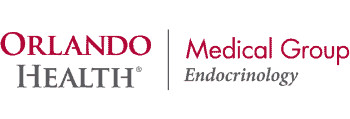Below you’ll find information about various types of hormonal disorders. If you have a question not addressed here, please contact us and we will get back to you as soon as possible.
Erectile Dysfunction
Erectile dysfunction (ED) refers to the inability to consistently achieve or maintain an erection for sexual intercourse. The occurrence of ED is increasingly common as a person ages, but it should not necessarily be considered a natural part of aging. In older men, there may be physical or medical conditions that contribute to ED, including a variety of diseases, physical injury or side effects from prescription medications. Psychological factors and certain life choices such as smoking, obesity, stress, anxiety, guilt and fear of poor sexual performance can all contribute to ED. Treatment for ED varies, depending on the underlying causes and other factors regarding the patient’s clinical status.
Gynecomastia
Gynecomastia is a common condition that affects nearly half of all men, resulting in the deposition of localized fat and/or glandular tissue in the breasts, causing breast enlargement and tenderness. For most cases of gynecomastia, the cause is unknown, but this condition may be linked to certain medications or diseases. Many men are embarrassed by this condition and seek treatment to achieve a smooth, contoured chest. In some cases, the problem responds to medical therapy. In other cases, patients are referred for male breast reduction surgery.
Testosterone Deficiency (Hypogonadism)
Testosterone deficiency (also known as male hypogonadism or “Low T” syndrome) refers to decreased production of testosterone by the male testes. The hormone testosterone is present in women as well as men, but its concentration in males is much higher than that in females. Appropriate levels of testosterone are important both for normal growth and development and also also normal sexual function in male patients. Low testosterone levels can be debilitating to both pubescent and adult men. There are many causes of low testosterone in males, including nutritional deficiencies and certain metabolic disorders, infections/inflammation/radiation exposure/vascular disorders involving the testes or the pituitary gland, other pituitary disorders, or certain genetic syndromes (such as Klinefelter’s syndrome). Lowering of testosterone levels is also part of the normal aging process (known as andropause or male menopause).
Most treatment regimens for male hypogonadism are involved with replacing the testosterone hormone in appropriate doses in order to maintain normal male levels of testosterone concentration in the blood. In addition, in certain cases, use of medications to block the conversion of androgen to estrogen or estrogen receptor blocking medications may be utilized to help treat the problem. At this center, we can aid the patient in developing a medical regimen that will help restore normal male testosterone levels and reduce the symptoms of hypogonadism as well.

